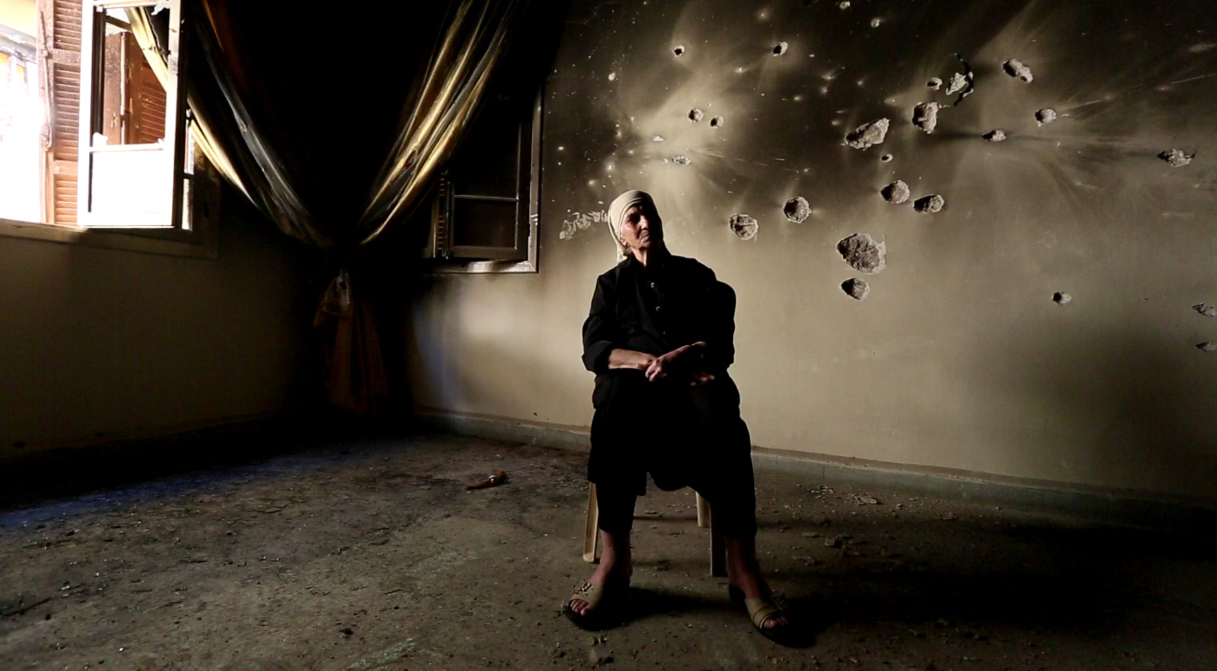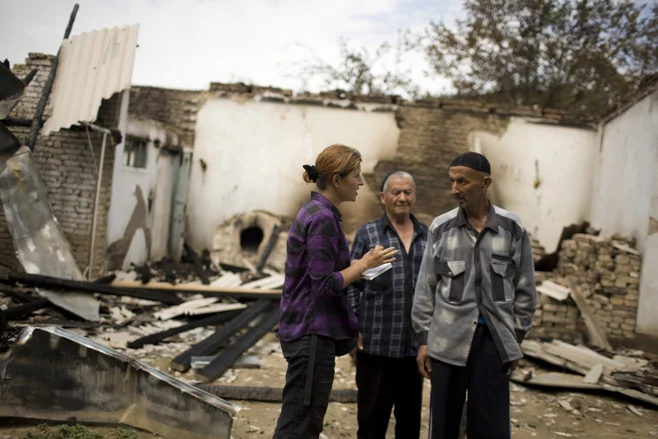BAHRAIN: Our Oath (The Trials of Spring)
Dr. Nada Dhaif helped create a medical tent to treat injured protesters in Bahrain’s Pearl Roundabout — and was sentenced to 15 years in jail.
SYRIA: Brides of Peace (The Trials of Spring)
The sisters Kinda and Lubna Zaour walked through the main souk in Damascus dressed as brides, a symbol of love and peace. They were arrested almost immediately.
YEMEN: When Is The Time? (The Trials of Spring)
In this conservative country — dubbed the worst in the world for women — the revolution offered feminists like Belquis Al Lahabi a faint glimmer of hope.
TORN APART: Families and US Immigration Reform
A recent surge in the number of child migrants trying to cross the US border from Mexico has rekindled public debate over US immigration policy. But the immigration issues that require Congress' urgent attention are not limited to the estimated 90,000 children who this year will journey into the United States alone and without authorization. Whether children who arrived yesterday or adults who came 20 years ago, 11 million unauthorized immigrants in the US are highly vulnerable to abuse of their basic rights—rights that US and international law guarantee.
Acting Up: Russia's Civil Society (**Peabody Award Recipient)
It is one of the best changes in Russia since the Soviet Union collapsed twenty years ago: the emergence of a small but vibrant civil society. To mark the historic anniversary of the fall of Communism, Human Rights Watch dispatched the renowned celebrity portraitist Platon to Russia to profile the valiant activists who are making a difference in Russia today.
Revolutionaries: Egypt's Transformers (**Webby Award Recipient)
In April 2011, Human Rights Watch commissioned portrait photographer Platon to create a portfolio from Cairo's Tahrir Square. Platon photographed human rights campaigners, social media activists, union organizers, writers, musicians, victims and heroes of the movement that brought an end to Hosni Mubarak's 30-years of repressive rule -- and helped inspire similar movements for human rights across the Middle East, and beyond.
MADE IN THE USA: Child Labor & Tobacco
Child labor is common on tobacco farms in the United States, where children are exposed to nicotine, toxic pesticides, and other dangers. The largest tobacco companies in the world purchase tobacco grown in the US to make popular cigarette brands like Marlboro, Newport, Camel, Pall Mall and others. These companies can't legally sell cigarettes to children, but they are profiting from child labor. US law also fails these children, by allowing them to work at much younger ages, for longer hours, and under more hazardous conditions than children working in all other sectors. Children as young as 12 can work legally on tobacco farms and at even younger ages on small farms.
SYRIA
Human Rights Watch has been working on Syria for years. This video features two of Human Rights Watch's investigations in 2013, including the al-Bayda massacre and the Ghouta attacks.
Lebanon: Syrian Conflict Increases Tensions in Tripoli
The conflict in neighboring Syria has severely aggravated existing sectarian tensions in Tripoli, where intermittent violence has persisted between the hilltop Alawite neighborhood of Jabal Mohsen and the Sunni neighborhoods that completely surround it, including Bab al-Tabbaneh, since May 2008. Hundreds of both Sunni and Alawite residents have been the main victims, but Jabal Mohsen residents are especially vulnerable.
Under Kurdish Rule in Syria
Kurdish authorities running three enclaves in northern Syria have committed arbitrary arrests, due process violations, and failed to address unsolved killings and disappearances. The Democratic Union Party (PYD), an offshoot of the Kurdistan Workers' Party (PKK) in Turkey, has effectively ruled the three predominantly-Kurdish enclaves since Syrian government forces withdrew from the areas in 2012, running a local administration with courts, prisons, and police.
Human Rights Watch: UPRISING
A look at the uprisings sweeping across the Middle East.
Child Marriage: Malawi
The government of Malawi should increase efforts to end widespread child and forced marriage, or risk worsening poverty, illiteracy, and preventable maternal deaths in the country. According to government statistics, half of the girls in Malawi will be married by their 18th birthday, with some as young as age 9 or 10 being forced to marry. Malawi faces many economic challenges, but the rights of the country's girls and women should not be sacrificed as a result.
Human Rights Watch: EYEWITNESS
Human Rights Watch is one of the world's leading independent organizations dedicated to defending and protecting human rights. For 30 years, Human Rights Watch has worked tenaciously to lay the legal and moral groundwork for deep-rooted change and has fought to bring greater justice and security to people around the world.
Syria: Torture Centers Revealed
Former detainees and defectors have identified the locations, agencies responsible, torture methods used, and, in many cases, the commanders in charge of 27 detention facilities run by Syrian intelligence agencies. The systematic patterns of ill-treatment and torture that Human Rights Watch documented clearly point to a state policy of torture and ill-treatment and therefore constitute a crime against humanity.










